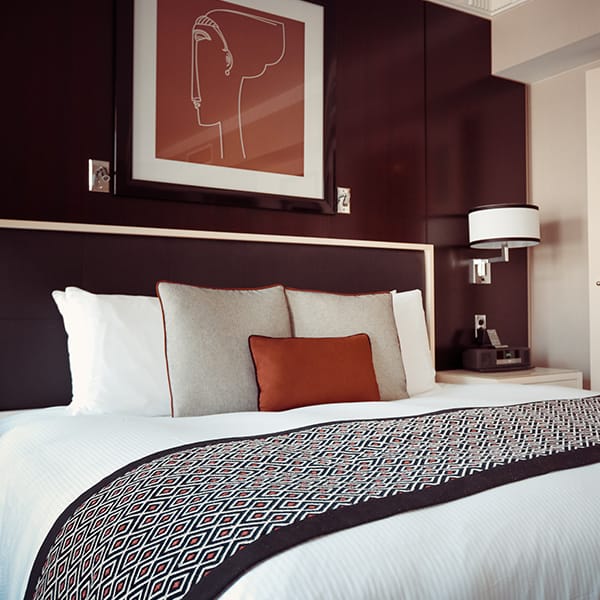Performing artists often find themselves overwhelmed by the administrative aspects of running their own business. Taxes, accounting, and self-assessment can be daunting tasks for individuals with artistic temperaments. However, it is crucial for performers to understand and manage their business expenses effectively to avoid unnecessary stress and potential issues with the tax authorities.
In this comprehensive guide, we will provide performers, including actors, musicians, and entertainers, with essential information on allowable expenses for self-assessment income tax in the UK. It’s important to note that while many items of expenditure can be claimed as wholly and exclusively incurred for the performance of your business, it is crucial to use these allowances responsibly and avoid overclaiming, which may lead to complications during tax inspections.
Agents: If you use an agent to secure bookings, they will charge a commission/fee that includes VAT. This cost is tax-deductible, though there is no set rate. People may be reluctant to pay agent fees, but without them, it’s unlikely they would get the job. Subscriptions to trade journals such as The Stage, PCR, Casting Call Pro/Singers pro are also tax-deductible and may be the only way to find out about auditions if you do not have an agent. Additionally, joining organisations such as Equity, Spotlight, and the Musicians Union can help an artist with their career and provide them with insurance. The cost of headshots for these organisations, particularly Spotlight, are also tax-deductible.
Travel: Travel costs for auditions, performances, rehearsals, and research trips, including Oyster card costs, can be claimed, as well as reasonable subsistence costs for trips outside of your normal routine. For overseas work, you can claim travel and accommodation costs, although there are complex rules if family accompanies you or if there is a holiday element to the trip.
Motor expenses can be put through as business costs in a proportion of business use vs personal use. All costs such as insurance, car recovery, road fund licence, valet services, MOT, car servicing & repair, fuel, oil, replacement blades etc. should be included. Either the costs can be divided by the business mileage for the year, or a mileage allowance can be claimed. A detailed mileage log needs to be kept with addresses and postcodes of where the performer is travelling from and to.
Subsistence: Meals are usually not an allowable business expense. Food and drink expenses incurred on trips outside of your normal pattern of work are allowable, however, if you are within 10 miles of your base location, they are not. A receipt is always best, but a contemporaneous record such as a diary or cashbook entry can be used to support the claim. If you are paid a per diem for food and beverages while on tour, this needs to be declared as income, with the actual costs incurred treated as expenses. Purchasing a meal or drink for an agent, business contact, or prospective client is not tax-deductible, as this is considered entertaining.
Accommodation: Performers often have to stay away from home in various types of accommodation if they are touring, filming, or promoting themselves. The hotel bill is usually allowable, but not added extras. If the performer’s routine typically includes a glass of wine with dinner, it is generally allowed when travelling. However, if family accompanies them or if there is a holiday element to the trip, there are complex rules that must be followed.Clothing and footwear: These are not usually allowed, however they can be deductible if purchased for a role in film, TV, or stage performance. If the performer wears the clothing to the venue and back home again, it becomes non-allowable due to duality of benefit. If a photo can be taken of the performer wearing the clothing in the setting in which it was purchased, it can be used as back up. Any reimbursed costs for costumes must be included as income. Dance shoes are fully allowable as a business expenditure, this is because of their distinct lack of duality in use. Dancewear for auditions and rehearsals are not a tax deduction. Cleaning of costumes can be claimed if they are dry cleaned, as always, receipts must be kept, but you can not claim for a box of detergent for example. If reimbursed for cleaning, that must be included as income.
Props: Any props used in a theatre, concert, or workshop environment are generally accepted as a business expense, provided they are not used in a personal capacity. Clothes also come up again in this circumstance as they may also be used as props, but records must be kept to ensure they are being used solely for the business. Strictly speaking, props should be treated as capital items and the costs associated with them should be spread out over their expected useful life.
Professional Research: Research is an important part of performing, and attending performances, galleries, and museums is an accepted way of doing so. It is important to make sure the research is relevant to the work being done. A performer can also claim travel expenses to get to places of research. This can also include DVD’s, CD’s, cinema, and movie subscriptions, and they are deemed are allowable expenses. Play texts, books, biographies, scores, downloaded music, and backing tracks may also be claimed as business expenses, as long as they relate to the performer’s work. To reiterate, this must relate to the work being performed.
Electronics: iPads, electronic notebooks, computers, printers, and cameras with a life of more than one year are allowable as business expenses, but their cost is typically spread over their expected useful life. The government does, however, offer an investment allowance which usually covers the cost of the asset in the first year. If there is any personal use, the allowance is restricted to the amount of business use only. It is best to get advice from an accountant if unsure.
Business-based software, such as Microsoft Office, internet security, Sibelius, notation software, publishing tools, and accounting software, are tax deductible if the computer is used for business. If used for both business and personal purposes, the cost of the software must be apportioned between business and personal use, unless the software is completely business-specific. Ink, stationery, and mailing costs related to business use are also deductible.
Marketing: Marketing costs, public relations, and advertising, including the cost of hiring a photographer for headshots, creating a voiceover CD or showreel, make-up and haircuts related to photo shoots, film premieres, or promotional events, and the cost of a PR manager, are all allowed as business expenses. The cost of designing a website, domain registrations, ongoing maintenance, and monthly subscription costs related to the website are tax deductible, though the design costs need to be spread over the expected life of the design.
Employee: Employee costs such as salaries, national insurance, and other benefits are allowable expenses for the business, so long as a recognised payroll scheme is in place and monthly reports are made to HMRC.Childcare is not an allowable tax deduction, as it is not a business expense. Payments to a non-earning spouse or other family member for secretarial services are allowed, so long as the payment is a commercial wage, is transferred to their bank account, and is reported on form P11D. Up to £150 per employee can be spent on annual entertainment, so long as it is wholly and exclusively for the purposes of the trade and not incidental to customer or agent entertainment.
Premises: If you rent a space in an arts centre or possess your own studio away from home, you could claim the costs for hiring the space. However, for a building you have purchased or built for business purposes, other rules apply. Generally, leaseholders will be responsible for utility costs (electricity, gas), maintenance (cleaning, repairs) and rent/lease costs. In the event of working from home, different rules are applicable. Freelance musicians teaching in a school must pay room rent which can be deducted as an allowable cost.
Working from Home: Generally, performers use their home for activities such as acting, practice, researching roles, browsing for castings, telephones & emails for agents, learning scripts and practising their art. Those working from home can claim an allowance based on the total spend running the home, the number of rooms dedicated to the business or a standard amount set by HMRC. Recordings used for marketing & advertising material such as show reels and production & distribution costs can be claimed, however, personal use of recordings requires the appropriate proportion of cost to be disallowed.
There are two options when dealing with working from home costs:
- Work out the total spend running the home. This includes mortgage interest, council tax, house insurance, gas, electricity (not water), cleaner and repairs/redecoration to the business room. Count the number of rooms in the house (excluding the kitchen & bathroom), and if the room(s) is(are) dedicated to the business, then divide the yearly cost but the number of rooms and multiply up by the number of rooms. If the room is not dedicated, then that needs to be reduced down by the amount of time it is used for business.
- There is a standard amount that can be claimed and accepted by HMRC. Currently, in 2023, the amount is £6 per week. However, this has now changed and is based on the amount of time spent in the business room. Evidence needs to be kept logging the number of hours and then the allowance taken.
Current rates are:
25 – 50 hours per month £10
51 – 100 hours per month £18
101+ hours per month £26
Events: Entries to networking events and travel costs to get there are deductible, with due consideration of any duality.
Personal Maintenance: Tax deductions for hair styling, makeup, and wigs used for work are suitable, particularly for those in period dramas and pantomimes. Cleaning costs for wigs can be claimed as an expense, but if there is any repayment, it must be added as income. In the last few years, HMRC has been diligent about hairdressing and makeup costs – routine hairdressing cannot be written off, but expenses for special events, concerts, etc. can be. Stage and TV makeup can be deducted, but everyday makeup is harder to justify.
Skills training: Training, workshops, and classes for singing and dancing are necessary and must be deducted, including full-time filming or Shakespeare courses. Learning new skills unrelated to one’s current business cannot be claimed as a deduction, but training to enhance marketability and business skills should be allowed.
Insurance: Insurance for the performer and their business is necessary, and public liability insurance is usually taken care of by membership in a union. Other insurances are available for example insurance for a pianist’s fingers, dancers legs, and these are all valid costs as wholly & exclusively used for the business of being a performer.
Instrument maintenance: These costs are deductible, but if the instrument is used in a PAYE employment, there must be a reduction in the amount being claimed.
Legal Fees: Generally, legal and professional fees are not allowable deductions. This includes costs associated with the purchase of large items, settling tax disputes, fines for violations of the law, and filing tax returns. Speeding tickets and parking fines are also not accepted for business and taxation purposes.
Accounting and bookkeeping: These fees are generally permissible. Exceptions include fees for preparing tax returns and the set-up costs of forming a company. If the accountant’s bill is all-inclusive, you should request a breakdown in order to identify which costs can be included as a deduction. Self-employed individuals must pay class 2 national insurance, but this is considered a personal expense and is therefore not an allowable business expenditure.
Banking: It is recommended that a separate bank account be used for business transactions, so that the financing costs are an acceptable tax deduction. Monthly charges from the business bank account are permissible, but if there is only one account, the financing costs cannot be claimed due to the difficulty of distinguishing between business and personal expenses. Agent fees and commissions paid to an agent or deducted from income are also acceptable expenses.
Still feeling confused? We know that as a self-employed individual or a freelancer, managing your income and taxes can be complicated and time consuming. At FiguresUK we can not only help you understand what you can claim back on your expenditures but complete your filing for you.
Get in touch with us today to take the stress out of managing your freelance finances.
 Jason Cannon
Jason Cannon
Managing Director and Figures UK Founder
No matter the size of your business, whether you’re a sole trader or a Limited company, when it comes to accounting, it can be a little confusing to say the least.
That’s where we come in. We’re on hand to listen, advise and provide our expert support.
You can find lots more useful information in our blogs below or get in contact with us.



 Jason Cannon
Jason Cannon




